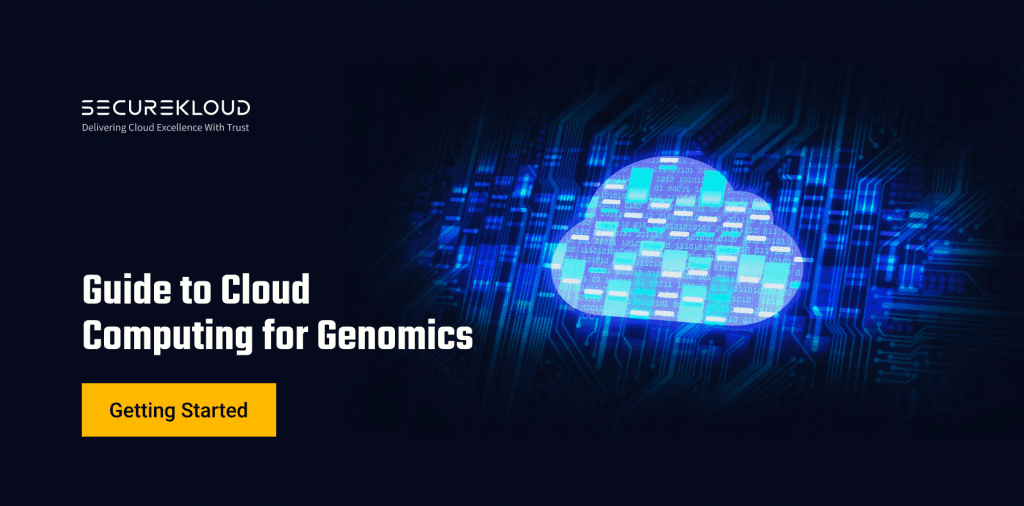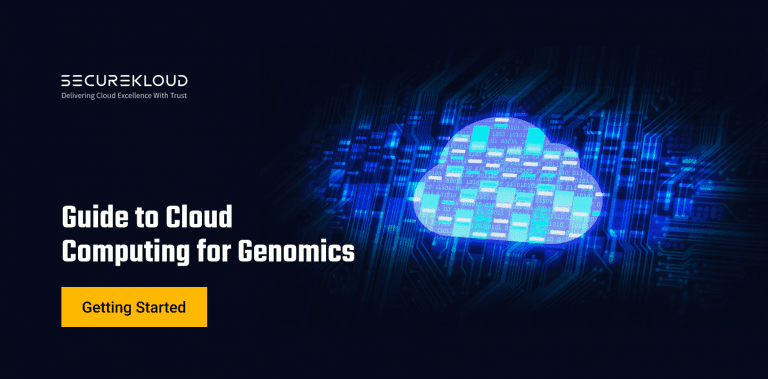The field of genomics has seen an explosion of data in recent years. With the advent of next-generation sequencing technologies and high-throughput experiments, genomics researchers are generating vast amounts of data that need to be analyzed and interpreted. However, the analysis and storage of this data require significant computational resources, which can be a significant challenge for many researchers and organizations.
This is where cloud computing comes in, offering a cost-effective and scalable solution for storing and analyzing genomics data. While cloud computing has become an essential tool for many genomics researchers, it can be intimidating for those new to the field.
Read on to learn how to take each step carefully.
Getting Started With Cloud Computing
Types of Cloud Services
Public, private, and hybrid clouds differ in terms of their ownership, access, security, and cost. For genomics, these differences can impact the availability, performance, and data protection of genomic data and applications.
Here’s a comparison of the three cloud types for genomics:
Public Cloud
A public cloud is owned and operated by a third-party provider and is accessible to the public over the internet. Public clouds offer scalable and on-demand resources, making them ideal for genomics workflows that require large amounts of compute and storage resources.
Public clouds such as Amazon Web Services (AWS) and Microsoft Azure offer specialized genomics services, such as genome analysis pipelines, data storage, and data sharing platforms. Public clouds are cost-effective, but data security can be a concern for sensitive genomic data.
Private Cloud
A private cloud is owned and operated by an individual organization, which provides greater control over data and security. Private clouds can be deployed on-premise or hosted by a third-party provider.
Private clouds are ideal for sensitive genomic data that requires compliance with regulatory standards such as HIPAA or GDPR. Private clouds are expensive to set up and maintain, but they offer higher levels of control and security.
Hybrid Cloud
A hybrid cloud combines elements of both public and private clouds, allowing organizations to take advantage of the benefits of both. Hybrid clouds are ideal for genomics workflows that require a mix of scalability and security.
For example, an organization can use a public cloud for scalable compute and storage resources while keeping sensitive genomic data on a private cloud. Hybrid clouds can be complex to set up and maintain, but they offer greater flexibility and cost-effectiveness.
Choosing the Right Cloud Service Provider
Choosing the right cloud service provider for genomics requires careful consideration of genomics-specific services, data security, scalability, cost, support, integration, reputation, and reliability.
So, consider these factors when selecting a cloud service provider for your genomics workflow:
- Genomics-specific services and tools
Look for a cloud service provider that offers specialized genomics services and tools, such as genome analysis pipelines, data storage, and data sharing platforms. This will save you time and effort in setting up and maintaining these services on your own.
- Data security
Genomic data is sensitive and requires high levels of data security. Make sure the cloud service provider has robust security measures in place such as encryption, access controls, and compliance with regulatory standards such as HIPAA and GDPR.
- Scalability
Genomics workflows require large amounts of compute and storage resources. Choose a cloud service provider that can scale up or down based on your needs and that can handle large datasets.
- Cost
They normally have different pricing models, and the costs can quickly add up. A cloud service provider that offers transparent pricing and provides cost-effective options for your genomics workflow will be the most suited for you.
- Support and expertise
Look for a cloud service provider that offers technical support and expertise in genomics. This will ensure that you have access to experts who can help you troubleshoot issues and optimize your genomics workflow.
- Integration with other tools and services
Make sure the cloud service provider can integrate with other tools and services that you may need for your genomics workflow like data analysis software or workflow management tools.
- Reputation and reliability
Go for a cloud service provider with a good reputation and track record of reliability. This will ensure that your data is safe, and your workflow runs smoothly.
Cost Structure of Cloud Computing
The cost of using cloud computing for genomics research depends on several factors like the type of cloud service used, the computing resources required, and the duration of usage. Public cloud services typically charge on a pay-per-use basis, where users only pay for the computing resources they use.
Private cloud services may charge a flat fee or a per-user fee, depending on the specific arrangement. It is essential to carefully monitor the usage of cloud resources to avoid unexpected costs.


Top 5 Benefits You’ll Enjoy After Cloud Adoption
1. Scalability
Cloud scalability allows you to handle the vast amounts of data generated by next-generation sequencing and high-throughput experiments. With cloud computing, you can easily scale up or down their computational resources to match the size and complexity of their data, without having to invest in expensive hardware or infrastructure.
It also enables you to collaborate and share data more effectively, as they can easily provide access to their data and analyses via the cloud. You can also accelerate genomics research by reducing the time and resources required to complete data analysis tasks, ultimately leading to faster and more accurate insights.
2. Cost-effective
You can take advantage of a pay-as-you-go pricing model, only paying for the computational resources you need when you need them. This can significantly reduce the cost of genomics research, as you no longer need to invest in expensive hardware or infrastructure that may sit idle for long periods of time.
You can perform large-scale analyses on-demand, without the need to purchase and maintain additional hardware. This flexibility can help you optimize research budgets, allowing researchers to allocate resources more effectively and focus on the most promising research questions.
Also, reduce the need for physical data storage, as data can be stored in the cloud and accessed from anywhere, eliminating the need for on-site storage facilities.
3. Flexibility
Flexibility is a key advantage of cloud computing for genomics research. Here are some ways in which the flexibility of cloud operations can help genomics:
- Experimentation: As you often need to experiment with new workflows, tools, and analysis methods, cloud allows you to quickly set up new environments and test your experiments without having to invest in expensive hardware or IT support.
- Customization: You can customize your computing environments to suit your specific research needs. Easily choose the specific tools, software, and operating systems you need, without having to compromise due to hardware limitations.
- Collaboration: Cloud computing enables you to collaborate with colleagues and share data more easily. The flexibility of cloud operations allows you to quickly spin up new environments and tools to support collaboration, regardless of your location.
- Remote Access: Cloud computing provides remote access to computing resources, so that you can work from anywhere, as long as you have an internet connection. This can be especially helpful as you need to work with large datasets and cannot transfer them easily.
- Faster Time-to-Results: The flexibility of cloud computing lets you to quickly access computing resources and begin their analyses, which can help speed up the time-to-results for genomics research projects.
4. Data management
You can store vast amounts of data in a cost-effective and scalable way. Genomics research generates massive amounts of data, which can be difficult and expensive to store using traditional storage solutions. But cloud storage solutions such as object storage, provide a cost-effective and scalable option for genomics data. Object storage also offers high availability, durability, and security features, making it a reliable solution for storing valuable research data.
Data backup and recovery are also key benefits you gain. Genomics data is often critical and cannot be lost. Cloud backup and recovery options can be automated, reducing the risk of data loss and freeing up time for researchers to focus on their research. In addition, cloud computing provides a centralized and secure location for genomics data, making it easier for you to access and share your data with collaborators.
5. Rapid innovation
Cloud computing is a rapidly evolving technology, and cloud service providers are constantly introducing new features, tools, and services. So, you can leverage the latest technological innovations to improve your research processes and accelerate your progress. Thus, you can process data faster and more efficiently, speeding up your research progress.
Access the latest software tools and applications for data analysis and visualization. Cloud service providers often provide a wide range of tools and services that can be customized to suit the specific needs of genomics research. Use the latest software tools and applications to analyze and visualize your data in new and innovative ways. This is a great way to improve the accuracy and efficiency of your research, which can lead to new discoveries and breakthroughs in the field.
Move to Cloud with SecureKloud
With 15+ years of expertise in cloud, SecureKloud helps organizations move their legacy data and applications to the cloud seamlessly. Through our end-to-end services from planning and design to implementation and support, you can achieve a smooth and successful migration to the cloud.
We help you take advantage of the many benefits of cloud computing, including cost savings, scalability, and flexibility while ensuring the security and privacy of your data. Get a comprehensive and reliable solution for seamless cloud adoption and focus on your core business while we take care of your entry into cloud.
To know more, get in touch with experts.





